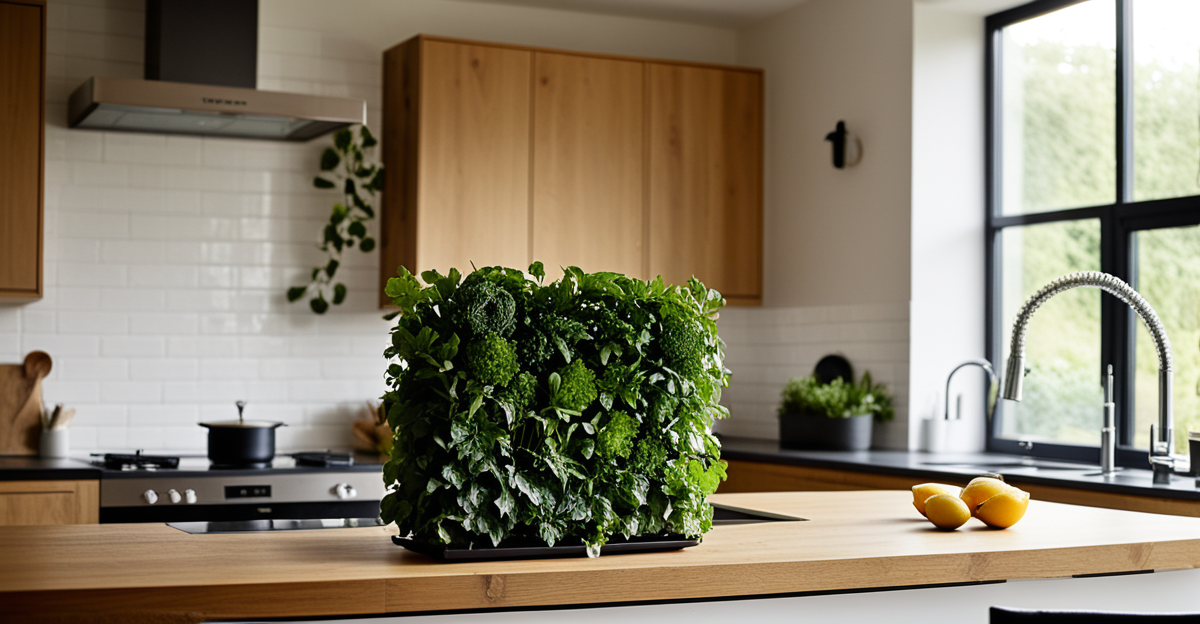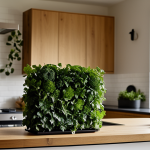Immediate Steps to Start Sustainable Living at Home
Starting with sustainable practices at home doesn’t require drastic changes. For UK residents eager to embrace beginner sustainability, simple habits can make a notable difference. For example, switching off lights when leaving a room or reducing water waste are easy steps with immediate impact. In the UK, practical environmental tips often highlight these small actions as foundational.
Using checklists and visual guides helps establish routines that last. Visual reminders near light switches or taps prompt consistent eco-friendly behavior. Moreover, tracking progress through these tools can motivate ongoing commitment.
Topic to read : How Can You Transform Your Small Space into a Cozy Retreat?
UK government and local councils offer valuable resources and schemes tailored for those new to sustainable living. Grants for energy-efficient appliances or waste reduction programs are often underutilized but highly effective. Engaging with these initiatives can provide guidance and financial support, making sustainable living more accessible.
Embracing such UK environmental tips simplifies the transition to greener living. Whether it’s setting up recycling stations or adopting energy-saving habits, starting with clear, manageable steps lays the groundwork for lasting change and encourages wider household participation.
This might interest you : How Can You Transform Your Space with Budget-Friendly Interior Design Ideas?
Immediate Steps to Start Sustainable Living at Home
Starting sustainable practices at home can feel overwhelming, but simple habits make a big difference. For beginners, focusing on daily actions like switching off unused appliances, reducing plastic usage, and recycling properly provides immediate impact. UK environmental tips suggest creating a checklist or visual guide to track these habits, which increases consistency and helps the whole household stay accountable.
Using a well-structured checklist makes sustainable routines feel achievable. For example, marking off simple tasks such as turning off lights when leaving a room or sorting waste according to local council rules can establish a solid foundation for ongoing change.
Newcomers to sustainability can benefit from UK government resources designed to support cleaner living. These include local schemes offering free energy-saving devices or community workshops on eco-friendly habits. Accessing local government tips tailored to your region ensures your efforts align with wider environmental goals.
By combining beginner sustainability techniques with practical tools like checklists and government support, households across the UK can make lasting strides toward greener living without feeling overwhelmed. Embracing these immediate steps will foster confidence and inspire deeper commitment to sustainable living at home.
Optimising Energy Efficiency for UK Households
Enhancing UK energy efficiency starts with improving home insulation. Good insulation in walls, roofs, and floors reduces heat loss, lowering heating bills and carbon emissions. Double or triple-glazed windows also prevent drafts, critical in the UK’s often damp climate. These upgrades form the foundation of energy-efficient homes, crucial for sustainable practices at home.
Switching to renewable energy suppliers is another effective step. UK consumers can choose electricity plans from wind, solar, or hydro sources, significantly cutting their environmental footprint. Many providers offer competitive tariffs, making this both an eco-friendly and cost-saving move.
Smart meters help monitor real-time energy consumption, increasing awareness and encouraging reduced usage. They provide accurate billing and identify which appliances use the most power, empowering better choices within beginner sustainability efforts.
UK government incentives, such as the Energy Company Obligation (ECO), support home energy improvements with grants or discounted services. These schemes make it easier and more affordable for UK residents to invest in insulation or switch to greener energy options. Leveraging these programs maximizes impact while managing household budgets effectively.
Optimising Energy Efficiency for UK Households
Improving UK energy efficiency starts with upgrading your home’s insulation and windows. Proper home insulation reduces heat loss in winter and keeps your house cooler in summer, directly lowering energy consumption. Double or triple-glazed windows complement insulation efforts by preventing drafts and maintaining consistent indoor temperatures.
Switching to renewable energy suppliers is another effective step. Many UK providers now offer tariffs based entirely on wind, solar, or hydroelectric power. This shift cuts your household’s carbon footprint while often delivering stable energy prices.
Installing smart meters helps track your energy use in real time, enabling more mindful consumption. These devices generate clear data that can guide you in reducing wasteful habits and improving energy management.
The UK government offers incentives for home energy improvements, including grants and subsidies for insulation upgrades, renewable energy systems like solar panels, and smart meter installations. These schemes make energy efficiency improvements more affordable and accessible for households just starting on their sustainability journey.
By prioritising upgrades that reduce energy loss and embracing renewable energy, UK households take significant steps toward lower bills and a greener footprint—core goals in UK energy efficiency efforts.
Immediate Steps to Start Sustainable Living at Home
Adopting sustainable practices at home in the UK begins with straightforward, high-impact habits. For instance, consistently turning off lights, avoiding standby power drain, and sorting waste properly align with essential UK environmental tips. These small, daily actions collectively reduce energy use and household waste, providing immediate benefits without major lifestyle changes.
To maintain momentum, using checklists or visual guides is invaluable. Placing reminders near light switches or recycling bins encourages routine adherence. Checklists help households track progress on simple but crucial steps, fostering accountability within families embracing beginner sustainability.
Moreover, the UK offers various government resources and local schemes that support those starting on this path. For example, applying for grants on energy-efficient appliances or joining community recycling initiatives can lower costs and ease the transition. Local councils also provide tailored advice to fit regional needs, making sustainability more accessible.
By combining these practical habits with available tools and support, UK households can confidently commit to greener living. Immediate action is achievable through clear, manageable steps that build a foundation for long-term sustainable change at home.
Reducing and Managing Household Waste
Effective waste management is key to sustainable living. UK recycling programs differ by local council but generally focus on segregating waste into paper, plastics, glass, and general rubbish. Knowing your area’s specific recycling rules ensures compliance and maximises recycling rates. For instance, some councils accept food waste separately, while others combine it with garden waste.
Home composting offers a practical solution for biodegradable waste. Compost bins or tumblers transform kitchen scraps and garden clippings into nutrient-rich soil, reducing landfill contributions. This aligns with reduce-reuse-recycle strategies by converting waste into a resource you can use in your garden.
Reducing household waste also means choosing reusable products over single-use items. Switching to reusable shopping bags, water bottles, and containers significantly cuts plastic consumption. Being mindful of packaging and purchasing items with minimal or recyclable materials supports broader environmental goals.
By combining awareness of UK recycling programs with home composting and adopting reduce-reuse-recycle strategies, households can substantially reduce their environmental footprint. Taking these immediate steps empowers beginners to move confidently toward sustainable practices at home, turning waste into a valuable asset.
Immediate Steps to Start Sustainable Living at Home
Integrating sustainable practices at home begins with adopting simple, consistent habits that deliver immediate results. In the UK, common beginner sustainability actions include turning off unused lights, avoiding appliance standby mode, and following proper waste sorting as per UK environmental tips. These habits reduce both energy consumption and waste, establishing a strong foundation for greener living.
Using checklists or visual reminders is an effective way to encourage these behaviours. Visual prompts placed near light switches or recycling bins help maintain routine adherence, making sustainable living feel manageable rather than overwhelming. Checklists also provide a concrete method to track progress, motivating households to stay committed.
For those new to sustainability, UK environmental tips recommend exploring government support and local schemes. Grants for energy-efficient appliances, community recycling projects, and region-specific advice are available to ease the transition. Utilizing these resources not only lessens financial burdens but also connects beginners to larger environmental goals.
Together, these approaches combine practical daily habits with supportive tools and incentives, enabling UK households to confidently begin their journey toward sustainability without major disruption.
Immediate Steps to Start Sustainable Living at Home
Adopting sustainable practices at home begins with integrating straightforward habits that immediately reduce environmental impact. To kickstart beginner sustainability, focus on daily actions such as turning off unused devices, managing waste thoughtfully, and conserving energy following UK environmental tips tailored to local contexts. These small changes cumulatively foster significant benefits in energy and resource use.
Using checklists and visual prompts enhances routine formation, making sustainable behaviours easier and more consistent. For example, placing reminders near light switches or bins can prompt waste sorting and energy-saving actions without extra effort. These tools help households track and maintain momentum, crucial for embedding sustainable practices at home long term.
Leveraging UK government support and local schemes accelerates progress. Many offer grants for energy-efficient appliances or free resources like LED bulbs. Community workshops and council advice further assist beginners in adopting sustainable habits aligned with regional priorities. Engaging with these programmes ensures that initial efforts are effective, supported, and financially manageable.
Incorporating simple, repeatable habits, supported by visual aids and government resources, empowers UK households to confidently embark on beginner sustainability journeys and lays a strong foundation for lasting change.
Immediate Steps to Start Sustainable Living at Home
Adopting sustainable practices at home begins by identifying simple habits that generate immediate impact. For UK households, routine actions like switching off unused appliances, avoiding standby power drain, and sorting waste according to UK environmental tips consistently reduce energy use and waste. These steps form the backbone of beginner sustainability and are essential for quick wins.
Using checklists and visual guides can effectively anchor these habits into daily life. Visual reminders placed near light switches or recycling points serve as prompts, increasing awareness and adherence. Checklists provide clear progress tracking, turning intangible goals into achievable tasks that encourage ongoing commitment.
Leveraging government-backed resources amplifies these efforts. UK residents can access grants for energy-efficient appliances or join local schemes focused on community recycling and sustainable living workshops. Such support systems ease financial pressures and provide tailored advice aligned with regional priorities.
By combining straightforward habits, practical tools like checklists, and access to UK environmental tips and government programs, households can confidently embark on a sustainability journey. This approach ensures beginner sustainability is manageable, actionable, and impactful from the outset.
Immediate Steps to Start Sustainable Living at Home
Starting sustainable practices at home involves focusing on easy-to-adopt habits that deliver quick results. In the UK, simple actions like turning off lights when not in use, minimising plastic waste, and sorting rubbish properly follow effective UK environmental tips. These manageable habits create immediate reductions in energy consumption and waste output, helping beginners see real impact fast.
Using checklists and visual guides is a proven way to embed these routines. For example, displaying reminders near light switches or recycling bins nudges everyone in the household to remember eco-conscious actions. Checklists also serve as tangible progress trackers, motivating ongoing commitment and making beginner sustainability less intimidating.
UK residents can amplify their efforts by tapping into government resources and local schemes designed to support sustainable living. These include grants for energy-saving appliances and community-based programmes promoting recycling and energy awareness. Leveraging such initiatives not only offsets costs but aligns personal goals with broader environmental priorities set by authorities.
Together, simple habits, visual tools, and available government support build a dependable framework. This approach enables UK households to confidently adopt sustainable practices at home, laying the groundwork for lasting eco-friendly behaviour.
Immediate Steps to Start Sustainable Living at Home
Starting with sustainable practices at home in the UK means identifying simple, impactful habits that fit daily life. Turning off unused appliances, avoiding standby power drain, and sorting waste properly are key beginner sustainability steps that make immediate differences. These straightforward actions align with trusted UK environmental tips, setting a foundation for ongoing eco-friendly routines.
Using checklists and visual guides helps embed these habits consistently. For example, placing reminders near light switches or waste bins encourages regular practice while tracking progress through checklists enhances accountability. This method transforms broad goals into manageable daily tasks, making sustainable living approachable rather than overwhelming.
Newcomers can also leverage UK government resources and local schemes designed to support beginner sustainability. Grants for energy-efficient appliances, community recycling initiatives, and regional workshops provide financial aid and practical knowledge. Accessing these programs eases upfront costs and ensures efforts align with larger environmental strategies across the UK.
Combining simple habit identification with practical tools and government support empowers households to start sustainable practices at home confidently. These immediate steps are essential in building momentum toward an eco-friendlier lifestyle.







